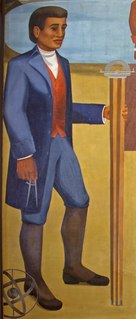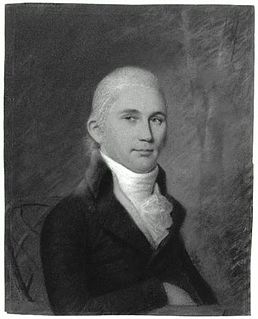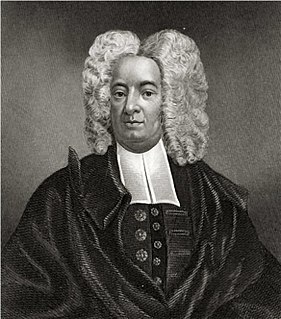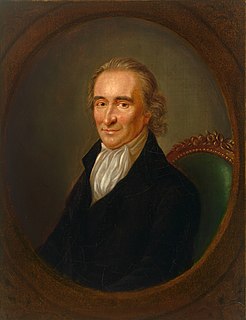 W
WHannah Adams was an American author of books on comparative religion and early United States history. She was born in Medfield, Massachusetts and died in Brookline. Adams was the first woman in the U.S. who worked professionally as a writer.
 W
WJohn Adams was an American statesman, attorney, diplomat, writer, and Founding Father who served as the second president of the United States, from 1797 to 1801. Before his presidency, he was a leader of the American Revolution that achieved independence from Great Britain, and he served as the first vice president of the United States. Adams was a dedicated diarist and regularly corresponded with many important figures in early American history, including his wife and adviser Abigail Adams and Thomas Jefferson.
 W
WKatharine Greene Amory was an 18th-century Bostonian known for the journal she kept during the American Revolution. It is valued by historians for its record of daily life and for its window onto the viewpoint of a Loyalist woman.
 W
WBenjamin Banneker was a free African-American almanac author, surveyor, landowner and farmer who had knowledge of mathematics and natural history. Born in Baltimore County, Maryland, to a free African-American woman and a former slave, Banneker had little or no formal education and was largely self-taught. He became known for assisting Major Andrew Ellicott in a survey that established the original borders of the District of Columbia, the federal capital district of the United States.
 W
WBenjamin Smith Barton was an American botanist, naturalist, and physician. He was one of the first professors of natural history in the United States and built the largest collection of botanical specimens in the country. He wrote the first American textbook on botany.
 W
WRev. Jonathan Boucher, FRSE, FSA was an English clergyman, teacher, preacher and philologist.
 W
WJoseph Dennie was an American author and journalist who was one of the foremost men of letters of the Federalist Era. A Federalist, Dennie is best remembered for his series of essays entitled The Lay Preacher and as the founding editor of The Port Folio, a journal espousing classical republican values. Port Folio was the most highly regarded and successful literary publication of its time, and the first important political and literary journal in the United States. Timothy Dwight IV once referred to Dennie as "the Addison of America" and "the father of American Belles-Lettres."
 W
WBenjamin Franklin was a British American polymath and one of the Founding Fathers of the United States. Franklin was a leading writer, printer, political philosopher, politician, Freemason, postmaster, scientist, inventor, humorist, civic activist, statesman, and diplomat. As a scientist, he was a major figure in the American Enlightenment and the history of physics for his discoveries and theories regarding electricity. As an inventor, he is known for the lightning rod, bifocals, and the Franklin stove, among other inventions. He founded many civic organizations, including the Library Company, Philadelphia's first fire department, and the University of Pennsylvania.
 W
WDr. Alexander Hamilton was a Scottish-born doctor and writer who lived and worked in Annapolis in 18th-century colonial Maryland. Historian Leo Lemay says his 1744 travel diary Gentleman's Progress: The Itinerarium of Dr. Alexander Hamilton is "the best single portrait of men and manners, of rural and urban life, of the wide range of society and scenery in colonial America." His diary covered Maryland to Maine; and biographer Elaine Breslaw says he encountered:the relatively primitive social milieu of the New World. He faced unfamiliar and challenging social institutions: the labor system that relied on black slaves, extraordinarily fluid social statuses, distasteful business methods, unpleasant conversational quirks, as well as variant habits of dress, food, and drink."
 W
WThomas Jefferson was an American statesman, diplomat, lawyer, architect, philosopher, and Founding Father who served as the third president of the United States from 1801 to 1809. He had previously served as the second vice president of the United States between 1797 and 1801. The principal author of the Declaration of Independence, Jefferson was a proponent of democracy, republicanism, and individual rights, motivating American colonists to break from the Kingdom of Great Britain and form a new nation; he produced formative documents and decisions at both the state and national levels.
 W
WBenjamin Lay was an Anglo-American Quaker humanitarian and abolitionist. He is best known for his early and strident anti-slavery activities which would culminate in dramatic protests. He was also an author, farmer, an early vegetarian, and distinguished by his early concern for the ethical treatment of animals.
 W
WCotton Mather was a New England Puritan minister, prolific author, and pamphleteer. One of the most important intellectual figures in English-speaking colonial America, Mather is remembered today chiefly for his Magnalia Christi Americana (1702) and other works of history, for his scientific contributions to plant hybridization and to the promotion of inoculation as a means of preventing smallpox and other infectious diseases, and for his involvement in the events surrounding the Salem witch trials of 1692–3. He also promoted the new Newtonian science in America and sent many scientific reports to the Royal Society of London, which formally elected him as a fellow in 1723. A controversial figure in his own day, he sought unsuccessfully the presidency of Harvard College, which had been held by his father Increase, another important Puritan intellectual.
 W
WJames Otis Jr. was an American lawyer, political activist, pamphleteer, and legislator in Boston, a member of the Massachusetts provincial assembly, and an early advocate of the Patriot views against the policy of Parliament which led to the American Revolution. His well-known catchphrase "Taxation without Representation is tyranny" became the basic Patriot position.
 W
WThomas Paine was an English-born American political activist, philosopher, political theorist, and revolutionary. He authored Common Sense (1776) and The American Crisis (1776–1783), the two most influential pamphlets at the start of the American Revolution, and helped inspire the patriots in 1776 to declare independence from Great Britain. His ideas reflected Enlightenment-era ideals of transnational human rights. Historian Saul K. Padover described him as "a corsetmaker by trade, a journalist by profession, and a propagandist by inclination".
 W
WJoseph Priestley was an English chemist, natural philosopher, separatist theologian, grammarian, multi-subject educator, and liberal political theorist who published over 150 works. He has historically been credited with the discovery of oxygen, having isolated it in its gaseous state, although Carl Wilhelm Scheele and Antoine Lavoisier also have strong claims to the discovery, Scheele having discovered it in 1772, two years before Priestley.
 W
WJoel Root (1770–1847) was an American sailor. He authored a journal of his around the world voyage while working as supercargo on the sealing ship Huron.
 W
WSamuel Stanhope Smith was a Presbyterian minister, founding president of Hampden–Sydney College and the seventh president of the College of New Jersey from 1795 to 1812. His stormy career ended in his enforced resignation. His words - "If reason and charity cannot promote the cause of truth and piety, I cannot see how it should ever flourish under the withering fires of wrath and strife" - epitomize his career.
 W
WSt. George Tucker, born in Bermuda, was a lawyer and, after the American Revolution, a professor of law at the College of William & Mary. He notably increased the requirements for a law degree at the college, as he believed lawyers needed deep educations. He served as a judge of the General Court of Virginia and later on the Court of Appeals.
 W
WGeorge Washington was an American political leader, military general, statesman, and Founding Father who served as the first president of the United States from 1789 to 1797. Previously, he led Patriot forces to victory in the nation's War for Independence. He presided at the Constitutional Convention of 1787, which established the U.S. Constitution and a federal government. Washington has been called the "Father of His Country" for his manifold leadership in the formative days of the new nation.
 W
WJohn Witherspoon was a Scottish American Presbyterian minister and a Founding Father of the United States. Witherspoon embraced the concepts of Scottish common sense realism, and while president of the College of New Jersey, became an influential figure in the development of the United States' national character. Politically active, Witherspoon was a delegate from New Jersey to the Second Continental Congress and a signatory to the July 4, 1776, Declaration of Independence. He was the only active clergyman and the only college president to sign the Declaration. Later, he signed the Articles of Confederation and supported ratification of the Constitution. In 1789 he was convening moderator of the First General Assembly of the Presbyterian Church in the United States of America.